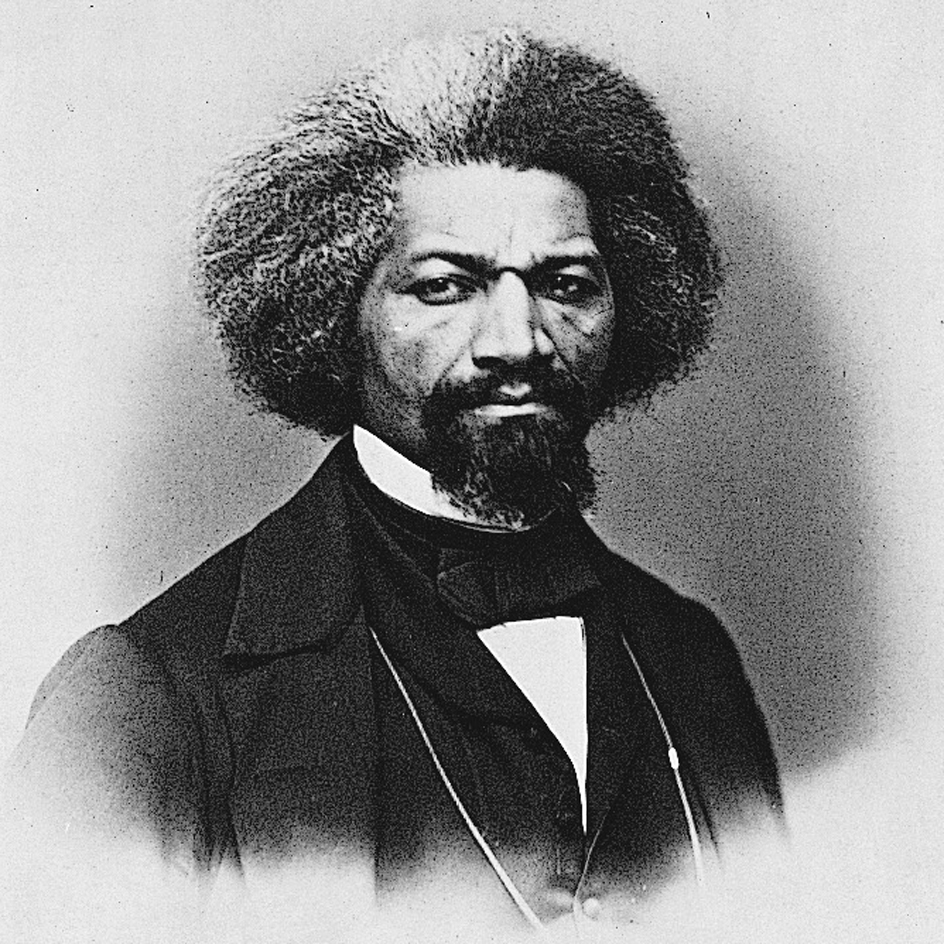Douglass, Frederick (1818?-1895), was the leading spokesman of African Americans in the 1800’s. Born into slavery, Douglass eventually escaped and became a noted reformer, author, and orator. He devoted his life to the abolition of slavery and the fight for Black rights.

Frederick Augustus Washington Bailey was born in Tuckahoe, Maryland, near Easton, probably in February 1818. At the age of 8, he was sent to Baltimore to work for a relative of the man by whom he was enslaved. Helped by the relative’s wife, he began to educate himself. He later worked in a shipyard, where he caulked ships, making them watertight.
In 1838, the young man fled Baltimore and went to New Bedford, Massachusetts. To avoid capture, he dropped his two middle names and changed his last name to Douglass. He got a job as a caulker, but the other men refused to work with him because he was a Black man. Douglass then held unskilled jobs, among them collecting rubbish and digging cellars.
In 1841, at a meeting of the Massachusetts Antislavery Society, Douglass told what freedom meant to him. The society was so impressed with his speech that it hired him to lecture about his experiences. In the early 1840’s, he protested against segregated seating on trains by sitting in cars reserved for white riders. He had to be dragged from the cars. Douglass also protested against religious discrimination. He walked out of a church that kept Black worshippers from taking part in a service until the white worshippers had finished participating.
In 1845, Douglass published his autobiography, Narrative of the Life of Frederick Douglass. He feared that his identity as a runaway slave would be revealed when the book was published, so he went to England. There, Douglass continued to speak against slavery. He also found friends who raised money to buy his freedom.
Douglass returned to the United States in 1847 and founded an antislavery newspaper, the North Star, in Rochester, New York. In the 1850’s, Douglass charged that employers hired white immigrants ahead of Black Americans. He once declared: “Every hour sees the Black man elbowed out of employment by some newly arrived emigrant whose hunger and whose color are thought to give him a better title to the place.” He accused even some abolitionist business executives of job discrimination.
Douglass also led a successful campaign against segregated schools in Rochester. His home was a station on the underground railroad, a system that helped people fleeing enslavement to reach freedom (see Underground railroad).
During the American Civil War (1861-1865), Douglass helped recruit African Americans for the Union Army. He discussed the problems of slavery with President Abraham Lincoln several times. Douglass served as recorder of deeds in the District of Columbia from 1881 to 1886 and as U.S. minister to Haiti from 1889 to 1891. He wrote two expanded versions of his autobiography—My Bondage and My Freedom (1855) and Life and Times of Frederick Douglass (1881). He died on Feb. 20, 1895.
